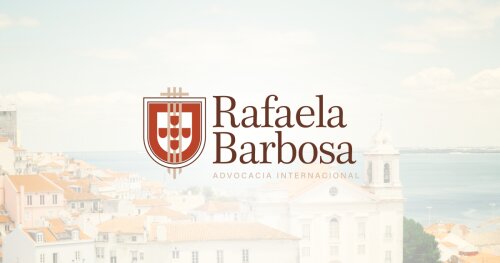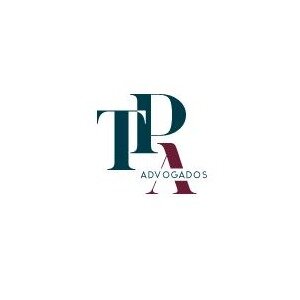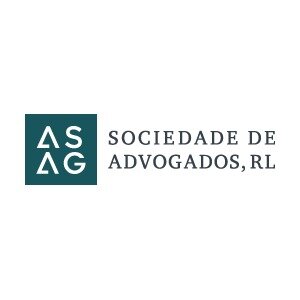Best Sanctions & Export Controls Lawyers in Lisbon
Share your needs with us, get contacted by law firms.
Free. Takes 2 min.
List of the best lawyers in Lisbon, Portugal
About Sanctions & Export Controls Law in Lisbon, Portugal
Sanctions and export controls are legal mechanisms that regulate the movement of goods, services, technology, and funds across borders. In Lisbon, Portugal, these laws are shaped by both national statutes and Portugal's obligations under international and European Union frameworks. The purpose of sanctions is typically to address national security concerns, prevent terrorism, curb the proliferation of weapons, or protect human rights. Export controls, on the other hand, manage and restrict the export of specific items, particularly those that could have military or dual-use applications. Compliance is essential for companies and individuals engaged in international trade or financial transactions to avoid severe penalties.
Why You May Need a Lawyer
Legal issues around sanctions and export controls can be highly complex and subject to frequent change, especially as global, European, and national laws are updated. Some common situations where legal advice is crucial include:
- Exporting controlled goods, technology, or software from Portugal
- Importing items that may fall under targeted sanctions
- Doing business with partners or customers in sanctioned jurisdictions
- Facing government audits or investigations into your business operations
- Seeking licenses or authorizations for restricted exports
- Uncertainty about compliance requirements for your products or services
- Responding to enforcement actions, penalties, or asset freezes
- Integrating sanctions compliance into M&A, joint ventures, or international contracts
An experienced lawyer can help you interpret the relevant laws, develop compliance strategies, navigate licensing procedures, and represent you before regulatory authorities in Lisbon and beyond.
Local Laws Overview
In Portugal, sanctions and export controls are governed by a blend of national regulations and EU law. The main characteristics include:
- Portugal enforces EU-wide sanctions, including arms embargoes, trade restrictions, financial sanctions, and travel bans imposed by the European Council.
- National authorities, like Banco de Portugal and the Portuguese Customs Authority (Autoridade Tributária e Aduaneira), oversee implementation and enforcement.
- Portugal also abides by United Nations Security Council sanctions, which are directly transposed into EU law and, consequently, national law.
- Controlled goods subject to export controls include military equipment, dual-use items (with both civilian and military uses), and certain advanced technologies.
- Licensing is generally required to export controlled items from Portugal to certain countries or end-users, or to provide related technical assistance.
- Non-compliance may lead to administrative fines, loss of export privileges, or even criminal prosecution.
- Local businesses must monitor updates to sanction lists, which can change rapidly in response to global events.
Frequently Asked Questions
What are sanctions and export controls?
Sanctions are legislative measures that restrict dealings with certain countries, organizations, or individuals for security or policy reasons. Export controls manage the international transfer of sensitive goods, technology, or services to prevent misuse.
Who enforces sanctions and export controls in Lisbon?
Sanctions and export controls are primarily enforced by the Portuguese Customs Authority and Banco de Portugal, following EU and United Nations directives.
Do EU sanctions automatically apply in Portugal?
Yes, as a EU member state, Portugal is required to implement all EU-mandated sanctions. These measures take precedence over national law.
What is a dual-use item?
Dual-use items are goods, software, or technologies that can be used for both civilian and military applications. Their export is subject to strict regulation.
How do I know if my product is subject to export controls?
You must check product classifications under EU and Portuguese export control lists, which define the categories of controlled goods and technologies.
What are the consequences of violating sanctions or export control laws in Portugal?
Consequences can include fines, criminal charges, seizure of goods, and reputational damage. Persistent violations can lead to loss of export licenses or business closure.
Are there exceptions or licenses available?
Yes, in some cases, you can apply for licenses or authorizations to export controlled goods or transact with sanctioned entities, typically if you demonstrate compliance with all conditions.
Can individuals be personally liable for violations?
Yes, company directors, officers, and employees can face personal liability if they authorize or participate in violations of sanctions or export controls.
How often do sanctions and export control lists change?
Sanctions and control lists are updated regularly, sometimes without prior notice. It is important to monitor updates or consult legal counsel routinely.
How can a lawyer help with sanctions and export control matters?
A lawyer can provide compliance advice, assist in license applications, perform due diligence, offer representation in investigations, and develop internal compliance programs.
Additional Resources
If you need further information or support, the following organizations in Portugal can be helpful:
- Banco de Portugal - Provides information on financial sanctions and reporting obligations.
- Autoridade Tributária e Aduaneira (Portuguese Customs Authority) - Offers guidance on customs processes and export controls.
- Ministry of Foreign Affairs - Facilitates export licenses and interprets international treaty obligations.
- European Commission - While based in Brussels, their information is directly relevant for goods being exported from Lisbon.
- Portuguese Chamber of Commerce and Industry - A resource for businesses on compliance and international trade.
Next Steps
If you are facing a situation related to sanctions or export controls in Lisbon, Portugal, consider the following steps:
- Identify whether your goods, services, or financial transactions may be affected by national, EU, or international sanctions or export controls.
- Consult the relevant control lists and regulatory updates for your specific business or personal activities.
- Engage a qualified lawyer with experience in sanctions and export controls to assess your risk and assist with compliance or licensing.
- Develop and implement an internal compliance program to train staff and monitor ongoing obligations.
- If you have received a government inquiry or audit, seek legal advice immediately to protect your rights and respond appropriately.
Timely legal guidance is the key to navigating the complexities of sanctions and export controls, minimizing risk, and maintaining your ability to operate internationally with confidence.
Lawzana helps you find the best lawyers and law firms in Lisbon through a curated and pre-screened list of qualified legal professionals. Our platform offers rankings and detailed profiles of attorneys and law firms, allowing you to compare based on practice areas, including Sanctions & Export Controls, experience, and client feedback.
Each profile includes a description of the firm's areas of practice, client reviews, team members and partners, year of establishment, spoken languages, office locations, contact information, social media presence, and any published articles or resources. Most firms on our platform speak English and are experienced in both local and international legal matters.
Get a quote from top-rated law firms in Lisbon, Portugal — quickly, securely, and without unnecessary hassle.
Disclaimer:
The information provided on this page is for general informational purposes only and does not constitute legal advice. While we strive to ensure the accuracy and relevance of the content, legal information may change over time, and interpretations of the law can vary. You should always consult with a qualified legal professional for advice specific to your situation.
We disclaim all liability for actions taken or not taken based on the content of this page. If you believe any information is incorrect or outdated, please contact us, and we will review and update it where appropriate.

















